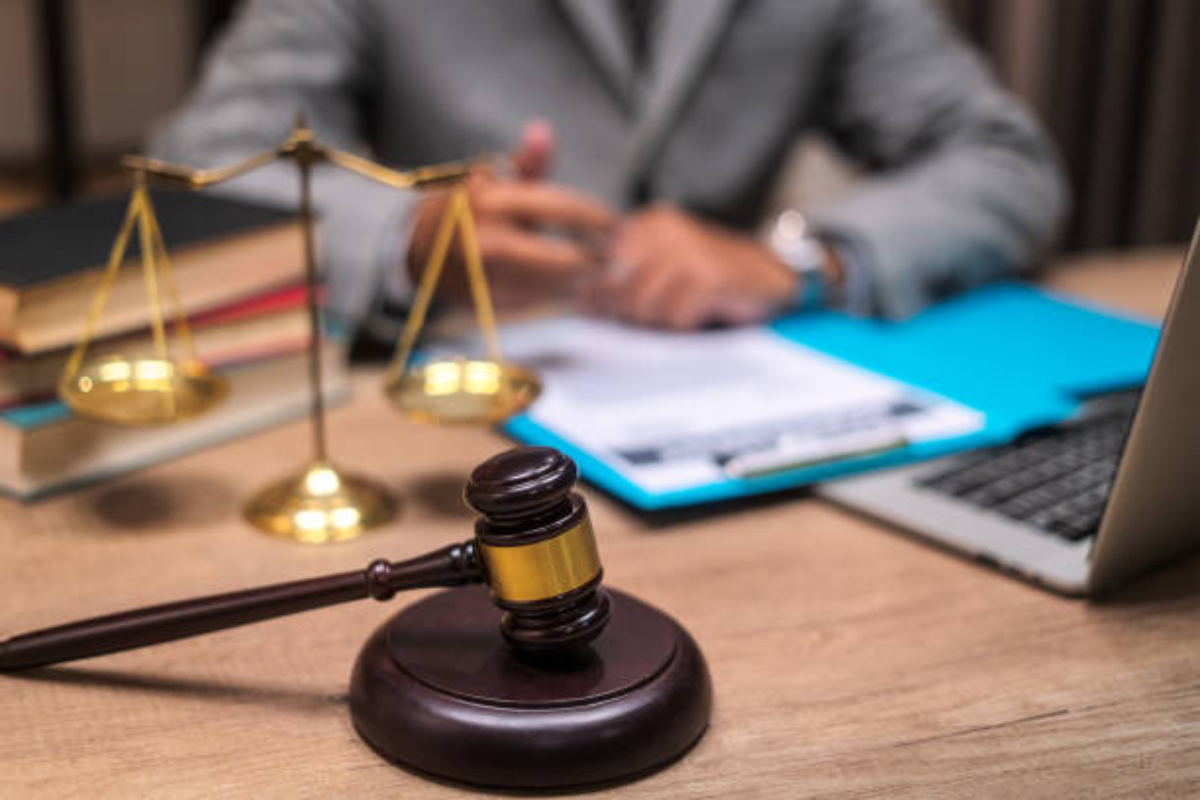How to Find a Lawyer: A Comprehensive Guide

Finding the right lawyer can feel overwhelming, especially when you’re already dealing with a stressful legal situation. Whether you’re facing criminal charges, going through a divorce, starting a business, or planning your estate, having the right legal representation can make all the difference in the outcome of your case. The legal system in the United States is complex, and navigating it without proper guidance can be risky and potentially costly. This guide aims to simplify the process of finding a lawyer who meets your specific needs, fits your budget, and has the expertise to handle your case effectively. We’ll explore different types of legal specializations, various resources for finding qualified attorneys, and important factors to consider during your search. By the end of this article, you’ll have a clear roadmap for finding the right legal representation for your situation.
Understanding When You Need a Lawyer
Before diving into how to find a lawyer, it’s important to understand when you actually need one. While some legal matters can be handled without professional legal assistance, others require the expertise of a qualified attorney to ensure the best possible outcome.Ready to connect with top legal professionals? Get immediate support— Call us at 877-550-8911.
Situations That Typically Require a Lawyer
- Criminal charges: If you’re facing criminal charges, from misdemeanors to felonies, having legal representation is crucial. A criminal defense attorney can protect your rights, negotiate with prosecutors, and represent you in court.
- Serious accidents or injuries: If you’ve been injured in an accident due to someone else’s negligence, a personal injury lawyer can help you seek compensation for medical bills, lost wages, and pain and suffering.
- Complex family matters: Divorces, child custody disputes, and adoption proceedings often benefit from legal guidance to navigate emotional and legal complexities.
- Business formation and operations: Starting a business, drafting contracts, or dealing with employment issues often requires specialized legal knowledge.
- Estate planning: Creating wills, trusts, and other estate planning documents can help ensure your assets are distributed according to your wishes and may require legal expertise.
- Immigration issues: Navigating the U.S. immigration system is complex and often requires specialized legal knowledge.
- Real estate transactions: Buying or selling property, especially in complicated situations, often benefits from legal oversight.
- Tax problems: Serious tax issues with the IRS might require the assistance of a tax attorney.
- Bankruptcy filing: Filing for bankruptcy involves complex procedures that are best navigated with legal assistance.
- Discrimination or harassment: If you’ve experienced discrimination or harassment in the workplace or elsewhere, an attorney can help you understand your rights and potential courses of action.
When You Might Not Need a Lawyer
Some situations where you might not immediately need a lawyer include:- Small claims court cases: These typically involve disputes under a certain dollar amount (varies by state, usually $5,000-$10,000) and are designed for individuals to represent themselves.
- Simple, uncontested divorces: If you and your spouse agree on all terms and have minimal assets, you might be able to use DIY divorce forms or services.
- Minor traffic violations: Most traffic tickets can be handled without an attorney, though serious offenses like DUIs typically warrant legal representation.
- Creating a basic will: If your estate is relatively simple, online will-creation tools might be sufficient.
Understanding Different Types of Lawyers
Law is a vast field with numerous specializations. Finding the right lawyer starts with understanding which type of legal expertise you need for your specific situation.Common Legal Specializations
- Criminal Defense Attorneys: Represent individuals charged with crimes, from minor offenses to serious felonies.
- Family Law Attorneys: Handle divorces, child custody, adoptions, and other family-related legal matters.
- Personal Injury Lawyers: Represent individuals injured due to others’ negligence, such as in car accidents, slip and falls, or medical malpractice.
- Business/Corporate Lawyers: Assist with business formation, contracts, mergers and acquisitions, and compliance issues.
- Estate Planning Attorneys: Help with wills, trusts, power of attorney documents, and other estate planning needs.
- Immigration Lawyers: Assist with visas, green cards, citizenship applications, and deportation defense.
- Employment Lawyers: Handle workplace issues such as discrimination, harassment, wrongful termination, and labor disputes.
- Real Estate Attorneys: Oversee property transactions, landlord-tenant disputes, and property-related litigation.
- Tax Attorneys: Help with tax planning, IRS disputes, and tax-related legal issues.
- Intellectual Property Lawyers: Assist with patents, trademarks, copyrights, and related disputes.
- Bankruptcy Lawyers: Guide individuals and businesses through the bankruptcy process.
- Environmental Lawyers: Handle cases related to environmental regulations and violations.
- Civil Rights Attorneys: Represent individuals whose constitutional or civil rights have been violated.
- Healthcare Lawyers: Specialize in legal matters related to healthcare regulations and compliance.
Resources for Finding Lawyers
Once you understand what type of lawyer you need, the next step is to find potential attorneys who meet your criteria. Here are various resources to help you create a list of potential lawyers:1. Bar Association Referral Services
Every state has a bar association that typically offers lawyer referral services. These services can match you with attorneys based on your legal needs and location. The American Bar Association (ABA) provides a directory of state and local bar associations on its website. These referral services typically:- Screen attorneys for proper credentials
- Match you with lawyers who practice in your needed area of law
- Often provide reduced-rate initial consultations
- Are usually free to use (though the consultation may have a nominal fee)
2. Legal Aid Organizations
If you have limited financial resources, legal aid organizations provide free or low-cost legal services to qualifying individuals:- Legal Services Corporation (LSC): A nonprofit organization that funds legal aid programs nationwide
- Pro Bono programs: Many lawyers and law firms offer some free services to those in need
- Law school legal clinics: Many law schools run clinics where law students, supervised by faculty, provide free legal assistance
3. Online Directories and Platforms
Several online resources can help you find and research attorneys:- LegalCaseReview: https://legalcasereview.com/ – Connects you with qualified attorneys specialized in your specific legal needs
- Avvo: Provides lawyer ratings, reviews, and a Q&A forum
- Martindale-Hubbell: One of the oldest attorney directories with peer and client ratings
- FindLaw: Offers a lawyer directory and legal information resources
- LegalMatch: Matches potential clients with attorneys based on their legal needs
- Justia: Provides a lawyer directory and legal resources
- Nolo: Offers a lawyer directory and self-help legal resources
4. Personal Recommendations
One of the most reliable ways to find a good lawyer is through personal recommendations from:- Friends and family members who have had similar legal issues
- Other professionals in your network, such as accountants, financial advisors, or doctors
- Other lawyers you know or have worked with who practice in different areas
- Business associates who have experience with legal matters similar to yours
5. Community Resources
Depending on your specific situation, various community resources might help:- Domestic violence shelters often have connections with family law attorneys
- Veterans’ organizations can refer veterans to lawyers experienced with military-related legal issues
- Senior centers may have connections with elder law attorneys
- Community centers sometimes host legal clinics or know of local resources
- Religious organizations occasionally offer legal referral services or know of congregation members who are attorneys
6. Employer Benefits
Some employers offer legal services as part of their benefits package through programs like:- Employee Assistance Programs (EAPs) that include legal consultations
- Legal insurance plans such as ARAG or MetLife Legal Plans
- Union membership benefits that sometimes include legal services
 Evaluating Potential Attorneys
Evaluating Potential Attorneys
Once you’ve compiled a list of potential lawyers, the next step is to evaluate them to find the best match for your needs. Here’s what to consider:
1. Credentials and Experience
Look for:- Education: Where they attended law school (though this is less important than practical experience)
- Years in practice: How long they’ve been practicing law, particularly in your specific area of need
- Specialized training or certifications: Some areas of law have board certifications or specialized credentials
- Bar membership status: Confirm they’re in good standing with the state bar association
- Track record: Their success rate with cases similar to yours
- Teaching or publishing: Whether they’ve taught law or published articles in their field (indicates expertise)
2. Reputation and Reviews
Research the lawyer’s reputation through:- Online reviews: Check Google reviews, Avvo ratings, and other platforms
- Testimonials: Read client testimonials on their website (though remember these are curated)
- Disciplinary records: Check with your state’s bar association to see if the lawyer has faced any disciplinary actions
- News articles: Search for any mentions in news articles, which might reveal notable cases or community involvement
- Peer ratings: Some directories like Martindale-Hubbell offer peer ratings from other attorneys
3. Communication Style and Personality Fit
The lawyer-client relationship requires good communication and trust. During initial interactions, assess:- Responsiveness: How quickly do they respond to your inquiries?
- Listening skills: Do they listen carefully to your concerns?
- Clarity: Can they explain complex legal concepts in terms you understand?
- Transparency: Are they upfront about potential challenges in your case?
- Comfort level: Do you feel comfortable discussing personal matters with them?
- Accessibility: Will you work directly with them or primarily with paralegals?
- Cultural sensitivity: Do they demonstrate understanding of any cultural factors relevant to your case?
4. Fee Structure and Affordability
Understanding how the lawyer charges is crucial for avoiding financial surprises:- Hourly rates: Most common for many types of cases, rates vary widely based on location, experience, and specialization
- Flat fees: Common for routine matters like simple wills or uncontested divorces
- Contingency fees: Typically used in personal injury cases, where the lawyer takes a percentage (often 33-40%) of any settlement or award
- Retainer fees: An upfront payment from which the lawyer deducts hourly charges as work progresses
- Payment plans: Whether they offer flexible payment options if needed
- Additional costs: Who pays for expenses like filing fees, expert witnesses, or copying costs
5. Initial Consultation
Most lawyers offer an initial consultation, which is an excellent opportunity to assess compatibility and ask questions:- Some consultations are free, while others charge a reduced fee
- Prepare specific questions about your case and the lawyer’s experience
- Bring relevant documents to help the lawyer understand your situation
- Use this time to assess not just legal expertise but also how comfortable you feel with the attorney
- Pay attention to the office environment and staff interactions, which often reflect the practice’s overall professionalism
Questions to Ask Potential Lawyers
Prepare a list of questions for your initial consultations to help evaluate potential attorneys effectively:Case-Specific Questions
- “Have you handled cases similar to mine before? What were the outcomes?”
- “What is your initial assessment of my case?”
- “What are the potential challenges or weaknesses in my case?”
- “What strategy would you recommend for my situation?”
- “What are the possible outcomes I should be prepared for?”
- “How long do you expect my case to take from start to finish?”
- “Are there alternatives to litigation we should consider?”
Experience and Qualifications Questions
- “How long have you been practicing in this specific area of law?”
- “What percentage of your practice is devoted to this type of case?”
- “Do you have any specialized training or certifications relevant to my case?”
- “Have you ever been disciplined by the bar association?”
- “Will you be handling my case personally, or will other attorneys or paralegals be involved?”
- “If I hire you, will you be the one representing me in court?”
Communication and Process Questions
- “How quickly do you typically respond to client communications?”
- “How will we communicate throughout my case? Email, phone, in-person meetings?”
- “How often will I receive updates about my case?”
- “Will I have direct access to you, or will I communicate primarily with staff?”
- “What information do you need from me to proceed effectively?”
- “How involved will I need to be in the process?”
Fee and Cost Questions
- “What is your fee structure for this type of case?”
- “Can you provide an estimate of the total cost for my case?”
- “What factors might cause the cost to increase?”
- “Are there any additional costs beyond your fees I should be aware of?”
- “Do you require a retainer? If so, how much?”
- “Do you offer payment plans?”
- “How often will I be billed, and what detail will the invoices include?”
Firm Operations Questions
- “How large is your firm, and what resources do you have available?”
- “Who will be my point of contact if you’re unavailable?”
- “How is work typically divided among attorneys and staff at your firm?”
- “What is your current caseload like? Do you have time to give my case proper attention?”
Red Flags to Watch For
While searching for a lawyer, be alert for potential warning signs that might indicate problems:- Guarantees of specific outcomes: Ethical lawyers acknowledge that legal matters involve uncertainty and won’t promise specific results.
- Pressure tactics: A lawyer who pressures you to sign immediately without giving you time to think or consult others.
- Unclear or constantly changing fee structures: Fees should be transparent and documented in writing.
- Poor communication: If the lawyer is difficult to reach or doesn’t return calls/emails promptly during the initial stages, this problem will likely continue.
- Dismissive attitude: A lawyer who dismisses your questions or concerns, or makes you feel your case isn’t important.
- Ethical violations: Any suggestion to falsify information, hide evidence, or otherwise act dishonestly.
- Disorganized office or operations: While minor disorganization can be overlooked, significant chaos might indicate problems with case management.
- Excessive negative reviews: While a few negative reviews are normal, a pattern of complaints about similar issues is concerning.
- Lack of proper documentation: Professional lawyers provide engagement letters and clear written fee agreements.
- Speaking badly about clients or other attorneys: This may indicate unprofessionalism and poor judgment.
- No malpractice insurance: While not required in all states, lack of malpractice insurance can be a red flag.
- Recent disciplinary actions: Check with your state bar association to see if the lawyer has been disciplined.
Making Your Final Decision
After researching, consulting with several attorneys, and gathering information, you’ll need to make your final decision. Consider these factors:- Expertise match: Does the lawyer have specific experience with cases like yours?
- Communication compatibility: Did you feel comfortable talking with them? Did they explain things clearly?
- Confidence level: Do you feel confident in their abilities and approach?
- Availability: Does the lawyer have the time and resources to handle your case properly?
- Fee structure: Is their pricing transparent and within your budget?
- References: What do former clients say about their experiences?
- Office location and accessibility: Is their office conveniently located? Do they offer virtual meetings if needed?
- Support staff: Did the paralegals and administrative staff seem competent and helpful?
- Technology utilization: Do they use modern case management and communication tools?
- Gut feeling: Sometimes your intuition about a person matters, especially in a relationship that requires trust.
- The scope of representation
- Fee structure and payment terms
- Communication expectations
- Case timeline estimates
- Responsibilities of both attorney and client
Working Effectively With Your Lawyer
Finding the right lawyer is just the beginning. To get the most value from your legal representation:Be an Active Participant
- Provide complete information: Be honest and thorough when sharing details about your case.
- Gather relevant documents: Organize and provide all documentation your lawyer requests.
- Respond promptly: Answer your lawyer’s questions and requests in a timely manner.
- Meet deadlines: Complete paperwork and other tasks by the required dates.
- Take notes: Write down questions and concerns between meetings.
Communicate Effectively
- Be concise: Organize your thoughts before calling or emailing your lawyer.
- Ask for clarification: If you don’t understand something, ask for an explanation.
- Set realistic expectations: Understand that legal processes often take longer than expected.
- Express concerns promptly: If you’re worried about the direction of your case, discuss it immediately.
- Respect boundaries: Recognize that your lawyer handles multiple cases and may not be available instantly.
Manage Costs
- Understand billing practices: Know what activities incur charges (emails, phone calls, research).
- Use time efficiently: Come prepared to meetings and focus on relevant issues.
- Consider task allocation: Some tasks might be handled by paralegals at lower rates.
- Review bills regularly: Check invoices for accuracy and ask about any charges you don’t understand.
- Discuss budget concerns: If costs are exceeding estimates, have a frank discussion about priorities.
Evaluate Ongoing Representation
Periodically assess whether your attorney continues to meet your needs:- Is communication satisfactory? Are your calls and emails returned within a reasonable time?
- Is progress being made? Even if slow, your case should be advancing.
- Are you being kept informed? You should receive regular updates about significant developments.
- Are bills clear and reasonable? Charges should align with the work being done.
- Requesting a different attorney within the same firm
- Filing a complaint with your state’s bar association if ethical concerns exist
- Seeking new representation if necessary
Special Considerations for Specific Situations
Different legal situations may require unique approaches to finding the right attorney:Criminal Defense
- Urgency: Criminal cases often require immediate representation
- Public defenders: Available for those who cannot afford private counsel
- Specialization: Look for attorneys who specialize in the specific type of criminal charge you face
- Local experience: Familiarity with local courts, prosecutors, and judges can be valuable
Family Law Matters
- Approach style: Consider whether you want an aggressive litigator or a collaborative problem-solver
- Children’s needs: For custody matters, look for attorneys experienced in child-centered approaches
- Emotional support: Family law cases are emotionally challenging; some attorneys are better at providing support
- Mediation vs. litigation: Some family lawyers specialize in mediation or collaborative divorce
Personal Injury Cases
- Resources: These cases often require substantial upfront costs for investigation and experts
- Trial experience: Check if the attorney regularly takes cases to trial or primarily settles
- Medical knowledge: Look for attorneys with strong understanding of relevant medical issues
- Contingency arrangements: Most personal injury lawyers work on contingency fees
Business Matters
- Industry knowledge: Consider attorneys familiar with your specific industry
- Business perspective: Some lawyers have business backgrounds that inform their legal advice
- Scalability: If your business is growing, you may want a firm that can grow with you
- Preventive approach: Business attorneys should help prevent legal problems, not just solve them
Immigration Issues
- Specialization: Immigration law is complex and constantly changing; specialists are essential
- Language abilities: Consider whether you need an attorney or staff who speak your preferred language
- Cultural understanding: Look for attorneys who understand the cultural context of your situation
- Board certification: Some states offer board certification in immigration law
Alternative Dispute Resolution and Legal Services
Traditional attorney representation isn’t always the only or best option. Consider these alternatives:Mediation and Arbitration
- Mediation: A neutral third party helps parties reach a voluntary agreement
- Arbitration: A neutral third party acts as a private judge and makes a binding decision
- Benefits: Often faster, less expensive, and less adversarial than litigation
- Limitations: May not be appropriate for all cases, especially those with power imbalances
Legal Clinics and Self-Help Resources
- Court self-help centers: Many courts provide resources for people representing themselves
- Legal workshops: Community organizations and law schools often offer educational workshops
- Online resources: Websites like LawHelp.org provide state-specific information and forms
- Limitations: Not suitable for complex matters or when significant rights are at stake
Limited Scope Representation
- Unbundled services: Lawyers handle specific parts of your case while you handle others
- Benefits: More affordable than full representation while providing crucial expertise
- Examples: Document review, coaching for self-representation, appearing for critical hearings
- Availability: Not all attorneys offer this service model
Legal Insurance and Prepaid Legal Plans
- Coverage types: Some plans cover specific services, others provide discounted rates
- Sources: Available through employers, organizations, or direct purchase
- Considerations: Check what’s covered, excluded, and any limitations on attorney selection
Conclusion
Finding the right lawyer is a process that requires research, consultation, and careful consideration. By understanding your legal needs, exploring various resources, and evaluating potential attorneys based on expertise, communication style, and cost, you can find legal representation that serves your best interests. Legal challenges can be stressful, but having the right lawyer by your side can provide peace of mind and help you navigate complex situations with confidence. Use this guide as a roadmap to find not just any lawyer, but the right lawyer for your unique circumstances.Don’t wait to secure the legal representation you deserve. Visit Legal Case Review today for free quotes and tailored guidance, or call 877-550-8911 for immediate assistance.




